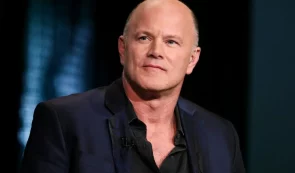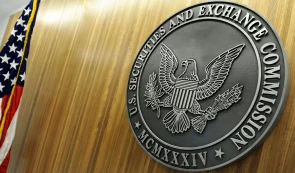Wall Street Economist Warns of Looming Recession and Fed’s Cautious Moves

The financial realm is currently abuzz with concerns raised by a prominent economist based in Wall Street.
This economist, Gary Shilling, who heads A. Gary Shilling & Co., has sounded a cautionary note about the possibility of an upcoming economic downturn. Shilling points to a hesitancy within the United States Federal Reserve to promptly adjust interest rates, potentially indicating an economic recession on the horizon.
Discussing recent declines in major stock indices, Shilling highlighted a notable shift in investor behavior. He emphasized that investors seem to be reconsidering their prior assumptions regarding the Federal Reserve’s role in rescuing Wall Street during financial crises.
Shilling, drawing on his experience at the Federal Reserve Bank of San Francisco and his tenure as the first Chief Economist of Merrill Lynch, noted the Fed’s delayed response to inflation last year. He pointed out that despite inflation peaking in June, the Fed only began tightening policy in March, leading to a erosion of trust in the institution’s reliability.
Expressing apprehension about the Fed’s credibility, Shilling warned that a change in their current stance might further dent trust in the institution, potentially requiring a substantial rebuilding of credibility from a disadvantaged position.
Anticipating an economic slowdown, Shilling drew parallels between significant interest rate hikes and historical recessions, suggesting a potential correlation between these hikes and impending economic contractions.
READ MORE: UK’s FCA Warns Against Bitfinex: Unapproved Financial Offerings Sparks Concern
Shilling suggested a prolonged period before the Federal Reserve might consider any easing of the current rate hikes, indicating the necessity for concrete evidence that inflation is no longer a predominant concern before any policy adjustments are made.
In a different viewpoint, Mike McGlone, a senior commodity strategist at Bloomberg, recently highlighted chart patterns resembling those prior to the Great Recession in 2008. This observation aligned with his repeated warnings of an impending economic downturn, as reported by Finbold in late September.
















